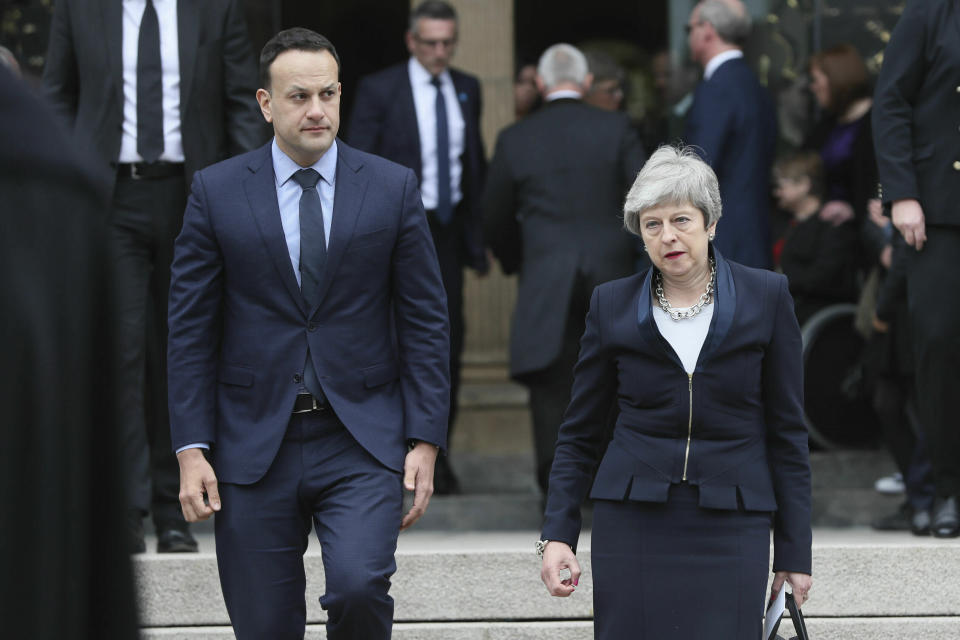UK and Irish governments set out timetable for new Northern Ireland talks

UK prime minister Theresa May and her Irish counterpart Leo Varadkar have agreed to establish a new five-week process aimed at restoring the Northern Ireland executive for the first time since January 2017.
The move comes in the wake of the murder last week of journalist Lyra McKee in Londonderry, and a poignant call to action by a priest officiating at her funeral.
In a joint statement released by both governments, May and Varadkar said they heard the “unmistakable message” at McKee’s funeral for political leaders to create “new momentum for political progress.”
“In coming together with other political leaders in St Anne’s Cathedral to pay tribute to Lyra McKee, we gave expression to the clear will and determination of all of the people of these islands to reject violence and to support peace and a better future for everyone in Northern Ireland,” the statement said.
Northern Ireland has been without an executive for more than two years due to a political stalemate between the Democratic Unionist Party (DUP) and Sinn Féin.
The talks will involve “all the main political parties in Northern Ireland, together with the UK and Irish governments,” the statement said.
“The aim of these talks is quickly to re-establish to full operation the democratic institutions of the Belfast/Good Friday Agreement — the [Northern Ireland] Executive, Assembly, and North-South Ministerial Council — so that they can effectively serve all of the people for the future.”
The New IRA, one of a handful of groups that oppose the 1998 Good Friday Agreement, has claimed responsibility for the death of McKee, which occurred during an Irish nationalist militant riot in the Creggan area of Londonderry on Good Friday.
Her killing has not only sparked outrage in Northern Ireland, but has also demonstrated how fragile peace in the region is.
The 1998 agreement ushered in some 20 years of relative stability, following three decades of clashes between unionist and republicans, known simply as the Troubles, that took the lives of more than 3,600 people.
Martin Magill, a Catholic priest, was given a standing ovation during a eulogy delivered at McKee’s funeral when he asked “why, in God’s name, does it take the death of a 29-year-old woman, with her whole life in front of her” to get politicians to come together.
The collapse of the Northern Ireland executive in 2017 followed a scandal involving a failed renewable energy incentive scheme known as the Renewable Heat Incentive.
But talks have not progressed for a number of reasons, including Sinn Féin’s objections to both the DUP’s use of a parliamentary mechanism to prevent the introduction of same-sex marriage and its position on the Irish language.
Both parties also fundamentally disagree about Brexit, with the DUP staunchly in favour of the UK’s departure from the EU, and Sinn Féin opposed.
This has meant that though the DUP props up May’s government in the House of Commons, Northern Ireland has been without a government in the midst of Brexit negotiations that directly impact it.

 Yahoo Finance
Yahoo Finance 
